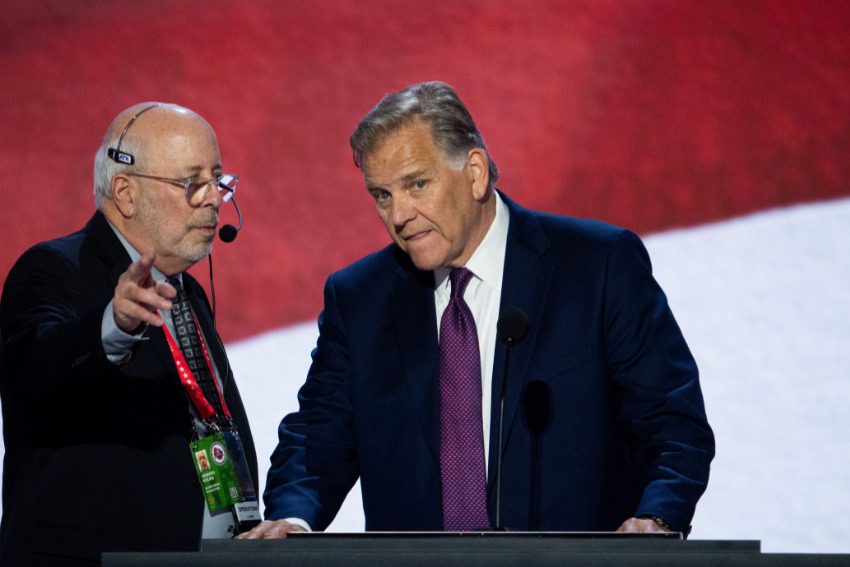
(Bill Clark/CQ-Roll Call, Inc. via Getty Images)
BY JON KING, MICHIGAN ADVANCE
MICHIGAN—Former US Rep. Mike Rogers (R-White Lake)said he was “passionately against” allowing Medicare to negotiate drug prices, which he referred to as “sugar high politics.”
The comments made by Rogers, who is running against US Rep. Elissa Slotkin (D-Holly) for Michigan’s open US Senate seat, came during a senior town hall meeting held in Troy on Sept. 20.
According to audio obtained by the Michigan Advance, Rogers said that when it came to negotiating drug prices, it was his belief that the federal government “shouldn’t be engaged in that.”
The ability to negotiate with pharmaceutical companies was only made possible when President Joe Biden signed the Inflation Reduction Act, following decades of attempts to push that reform through Congress. The act also capped monthly insulin out-of-pocket costs for Medicare Part D beneficiaries at $35.
In his comments, Rogers reiterated his support for Medicare Part D, which helps cover some of the costs associated with prescription drugs, noting he voted for its passage while in Congress in 2003.
“I was involved in adding prescription drugs to Medicare for the very first time,” Rogers told those in attendance. “I thought it was nuts that you had an insurance plan that didn’t have drug coverage. I worked to make Part D available and it saved literally thousands and thousands of dollars per family.”
However, the legislation included a provision, backed by the pharmaceutical industry, that explicitly prohibited the federal government from negotiating drug prices. Rogers later defended that provision, telling C-SPAN in 2006 that he believed free market forces would work best.
“I mean, it made America great. Why can’t we apply it to the drug costs to get them down? And it’s working. So I argue that, over time, this is an investment we will reap the rewards for,” Rogers said at the time.
But according to a 2019 Congressional Budget Office report, the reward has instead was a quadrupling of net spending on specialty drugs in Medicare Part D from $8.7 billion in 2010 to $32.8 billion in 2015.
Speaking to the audience at the Troy town hall, Rogers said his opposition to drug price negotiation was based on the potential for premiums to increase.
“My argument is this, and I tried to make this argument then and that’s why I was so passionately against it, because what they’ve done now is, there is rumors that there’s going to be [an] over 125% increase in premiums next year because of it. Who does that help?” asked Rogers.
He then went on to say that Democrats’ support for drug price negotiation was a campaign gimmick.
“So this sugar high politics that you get, I’m going to throw it right at you and this is going to help you,” he said. “It’s going to take a hundred dollars off this month, but it’s going to cost you $10,000 in the next five years. We shouldn’t be engaged in that. I call ’em political cicadas. Everything that you see, the Democrats doing it now. They come out, they pop their head out of the hole. It’s election season, right? They’re going to throw money at you and tell you they’re going to stay here, save Medicare and Social Security, all of this stuff and then you don’t see ’em again for four years, right?”
According to the Centers for Medicare & Medicaid Services (CMS), the discounts on the first 10 drugs selected for negotiation range from between 38 and 79% off of list prices.
“If the new prices had been in effect last year, Medicare would have saved an estimated $6 billion, or approximately 22 percent, across the 10 selected drugs,” said CMS.
When asked about the remarks by the Advance, Rogers Communications Director Chris Gustafson reaffirmed the former congressman’s commitment to Medicare.
“Mike Rogers fought to create Medicare Part D and provided seniors with prescription drug coverage for the first time, saving them thousands of dollars every year. Slotkin voted to raise Medicare premiums and her 100% support for Biden-Harris’ wasteful spending raised prices on seniors by over $12,000 per year. Mike will continue to fight to protect Medicare and eliminate taxes on Social Security, Slotkin will continue to work for herself,” said Gustafson.
Politifact rated as “False” a previous post by Rogers’ campaign that Slotkin had voted to cut Medicare when she joined Democrats in passing the Inflation Reduction Act.
The website noted that the Rogers campaign said potential premium increases were akin to program cuts, but Politifact concluded that “to characterize the Inflation Reduction Act as a ‘cut’ to Medicare is misleading, and it ignores the many new benefits beneficiaries will receive because of the law.”
Michigan Democratic Party spokesperson Sam Chan sent a statement to the Advance.
“After being bankrolled by Big Pharma, Mike Rogers wants to keep prescription drug prices high while Michigan families pay the price. It’s clear that Rogers is only in this race to enrich himself and his wealthy special interest backers even when it hurts working Michiganders,” said Chan.
Rogers has come under fire for his links to the pharmaceutical industry after Bridge Michigan reported that while in Congress, Rogers was a “leading advocate for greater access to pain medications,” while receiving “hundreds of thousands of dollars in campaign contributions from the same drug companies that now are paying billions of dollars in national opioid settlements for their roles in causing the epidemic.”
As for the senior town hall, Rogers’ campaign website linked the rumors of a Medicare premium increase to a Fox News story, which primarily quotes Joe Grogan, a former domestic policy advisor for former President Donald Trump.
But a report from KFF notes that the Inflation Reduction Act anticipated potential premium increases and included a provision designed to help limit annual premium increases.
“Specifically, the law caps growth in the base beneficiary premium to no more than 6% above the prior year’s amount,” said the report. “Although this 6% cap doesn’t apply to the individual premiums that plans charge, it does help to limit premium increases.”
READ MORE: Republican Senate candidates vow to take away health insurance from 1.3 million Michiganders
This coverage was republished from Michigan Advance pursuant to a Creative Commons license.

Another former Republican Michigan Congressman is abandoning Donald Trump
Former US Rep. Fred Upton, a Republican who represented Southwest Michigan’s 6th Congressional District, is throwing his support behind Kamala...
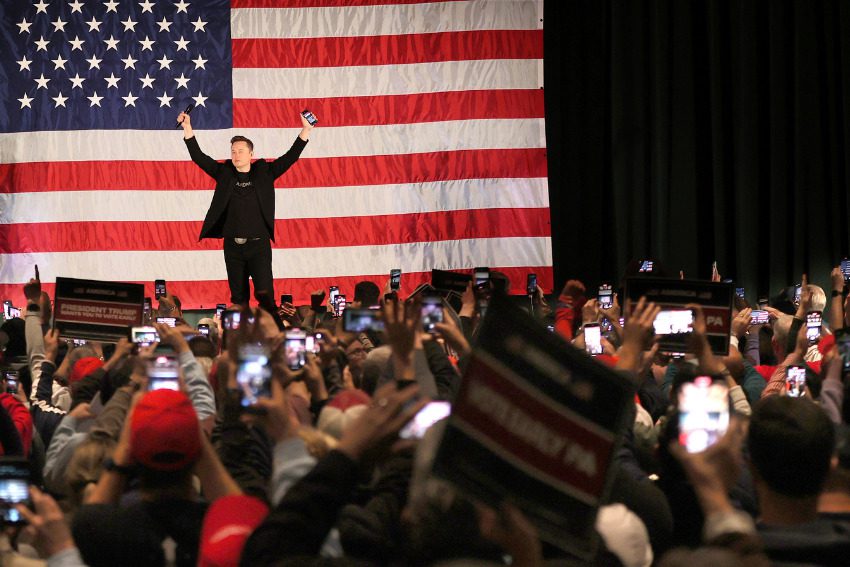
Fact Focus: Inactive voters on Michigan’s rolls are misrepresented in suggestions of fraud
Less than two weeks from Election Day, posts circulating on social media claim that Michigan has 500,000 more registered voters than it has people...
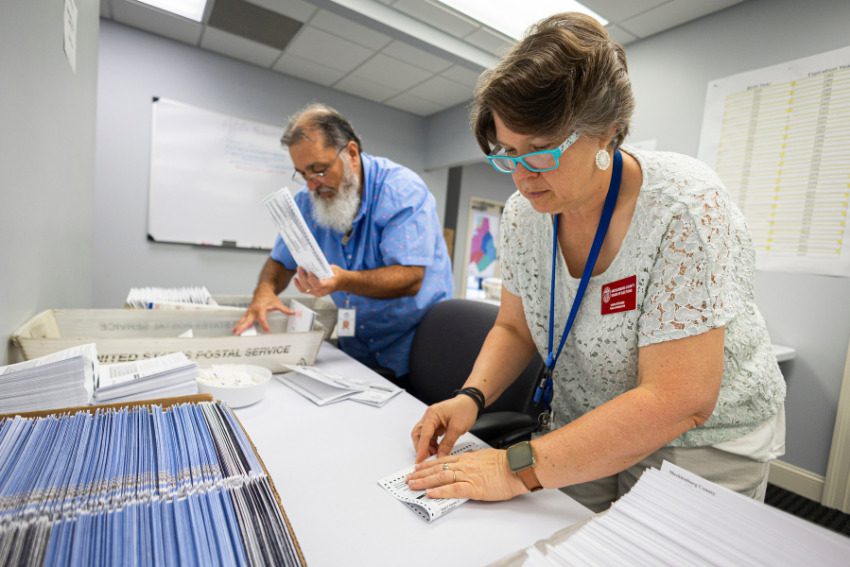
Court decisions in Michigan and North Carolina deny GOP challenges to overseas voters
Courts in Michigan and North Carolina on Monday rejected attempts by Republicans to disqualify the ballots of certain overseas voters. Both cases...
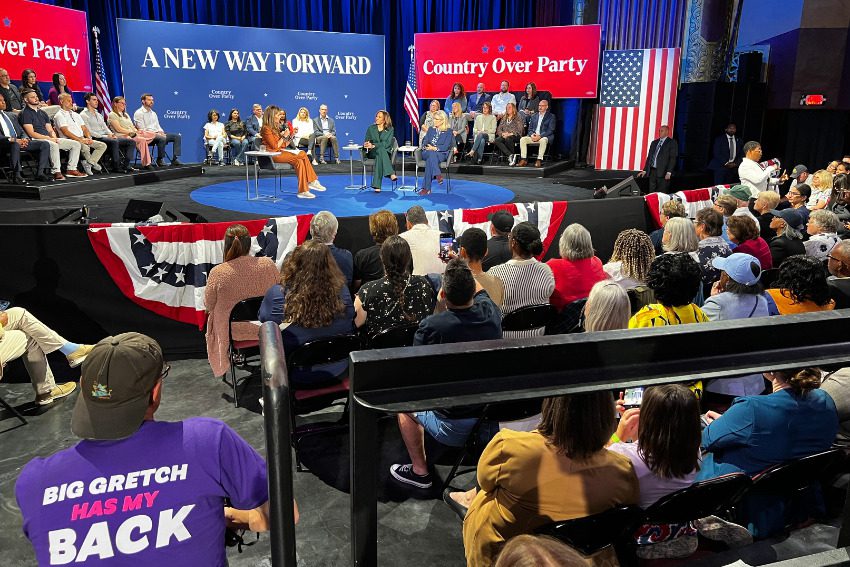
Liz Cheney teams up with Kamala Harris to warn Michiganders against second Trump term
Former Republican Congresswoman Liz Cheney is putting her “country over party” and urging Michiganders to vote for Democratic presidential candidate...
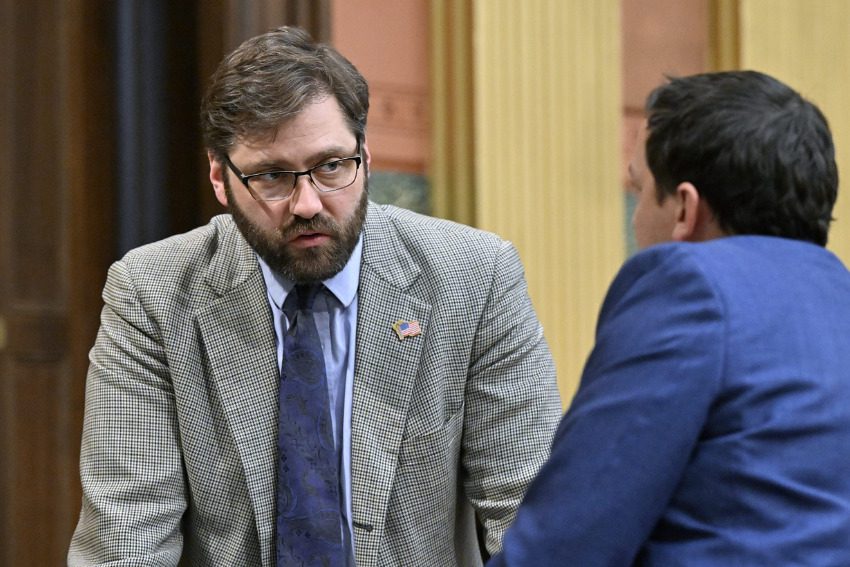
5 things to know about conservative Michigan Supreme Court candidate Andrew Fink
Voters will decide in November who gets to serve on the most powerful court in Michigan. And Republican state Rep. Andrew Fink thinks he deserves a...




